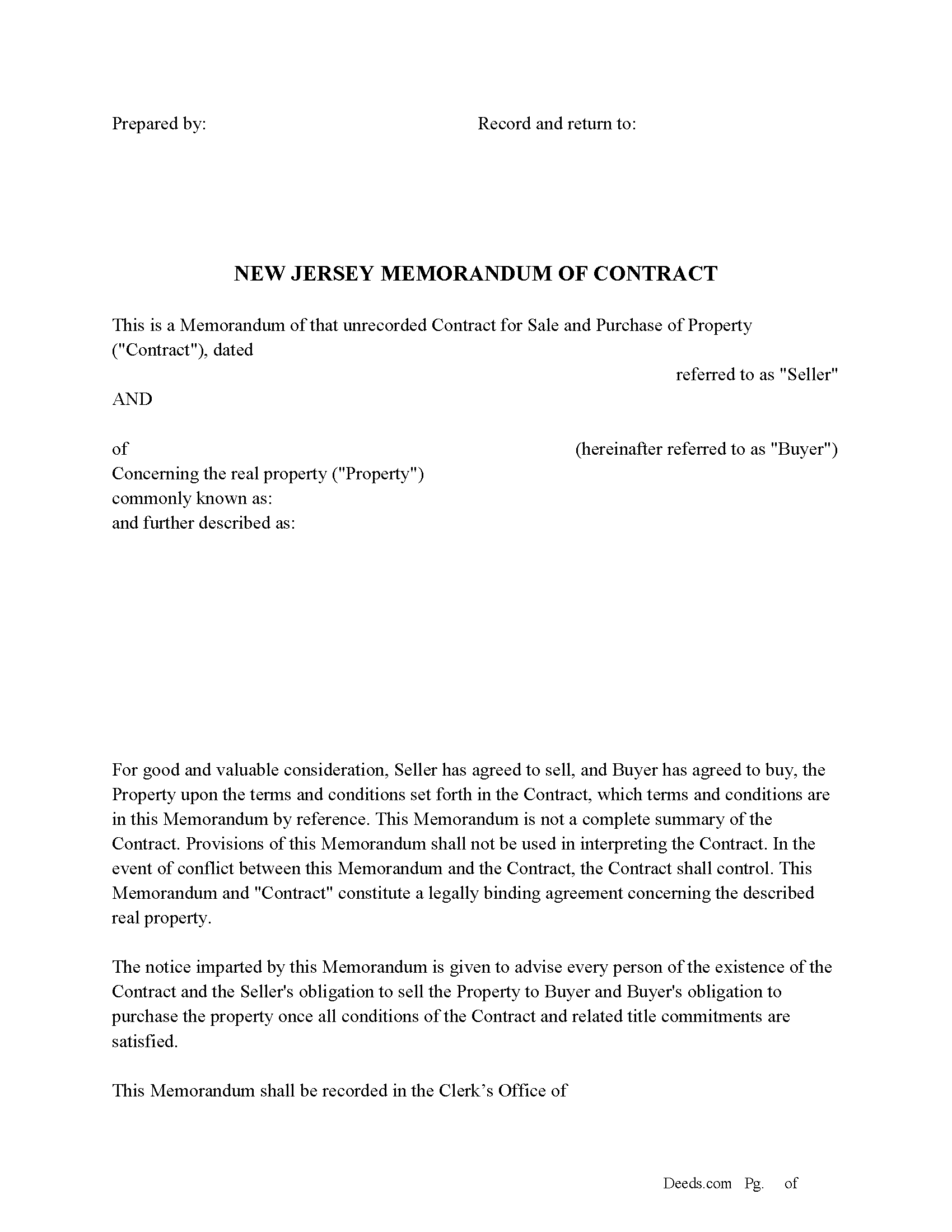Download New Jersey Memorandum of Contract Legal Forms

New Jersey Memorandum of Contract Overview

The primary purpose of the memorandum is to give public notice of the existence of the sales contract/agreement and to establish the buyer's interest in the property.
Key Provisions:
Recording of Instruments (N.J.S.A. 46:16-1): This statute outlines the requirements for recording instruments affecting real property, which includes a Memorandum of Contract. It mandates that any deed or other instrument intended to create, transfer, or encumber an interest in real property must be recorded in the county where the property is located.
Effect of Recording (N.J.S.A. 46:21-1 et seq.): This section details the legal effect of recording documents. Recording a memorandum provides constructive notice to third parties of the existence of the underlying contract and the interests of the parties involved.
Acknowledgment and Proof (N.J.S.A. 46:14-1 et seq.): These statutes govern the acknowledgment and proof required for documents to be recorded. A Memorandum of Contract typically must be acknowledged before a notary public or other authorized officer to be eligible for recording.
Form and Content (N.J.S.A. 46:16-1.1): Specifies that documents presented for recording must be in a form that is acceptable to the county recording office, including the need for notarization and any additional information required by the local jurisdiction.
Example Statutory Language: N.J.S.A. 46:16-1: "Any deed or other instrument which is intended to create, transfer, or encumber an interest in real property in this State may be recorded in the office of the county recording officer of the county in which the real property is situated."
Practical Implications: A Memorandum of Contract should be prepared in accordance with these statutes, ensuring it is properly acknowledged and contains all necessary information to be accepted for recording.